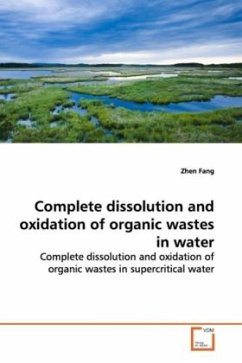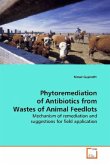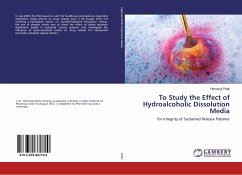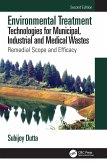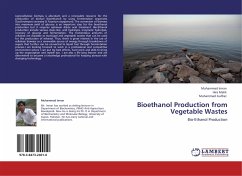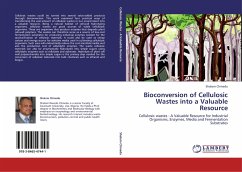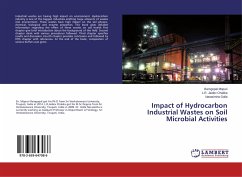This book is about using supercritical water (SCW)
process to dissolve organic wastes, and subsequent
using oxygen to completely destroy the wastes by
homogeneous oxidation. First, properties of SCW were
introduced, and its peculiar properties were used to
dissolve organics for oxidation. Phase behavior of
pure organics were studied in an optical micro-
reactor diamond anvil cell (DAC) coupled with
optical & FT-IR microscopes. Oxidation experiments
in SCW were performed in larger batch and flow
reactors for complex wastes. From the visual
observations in the DAC, homogeneous phases with
water were found for cellulose, naphthalene, benzo(a)
pyrene and polystyrene. Complete dissolution of
decachlorobiphenyl occurred only when O2/Na2CO3 was
present. The homogeneous conditions were used for
the oxidation of a complex De-inking sludge waste
that was mainly composed of the above pure organics
and heavy metals (Pb, Cr, Cd) in larger reactors. It
was found that all organics in the sludge could be
almost completely oxidized. The heavy metal salts
were effectively removed by precipitation to
insoluble oxides and salts with little leachability.
process to dissolve organic wastes, and subsequent
using oxygen to completely destroy the wastes by
homogeneous oxidation. First, properties of SCW were
introduced, and its peculiar properties were used to
dissolve organics for oxidation. Phase behavior of
pure organics were studied in an optical micro-
reactor diamond anvil cell (DAC) coupled with
optical & FT-IR microscopes. Oxidation experiments
in SCW were performed in larger batch and flow
reactors for complex wastes. From the visual
observations in the DAC, homogeneous phases with
water were found for cellulose, naphthalene, benzo(a)
pyrene and polystyrene. Complete dissolution of
decachlorobiphenyl occurred only when O2/Na2CO3 was
present. The homogeneous conditions were used for
the oxidation of a complex De-inking sludge waste
that was mainly composed of the above pure organics
and heavy metals (Pb, Cr, Cd) in larger reactors. It
was found that all organics in the sludge could be
almost completely oxidized. The heavy metal salts
were effectively removed by precipitation to
insoluble oxides and salts with little leachability.

